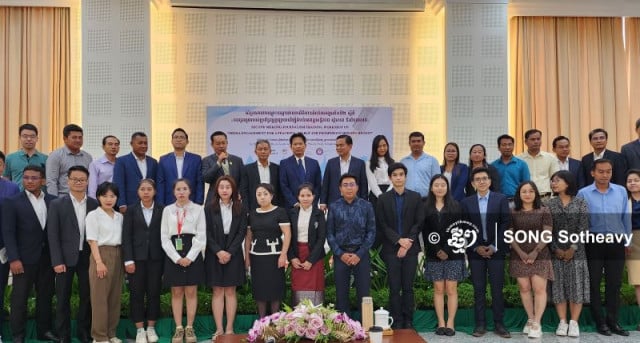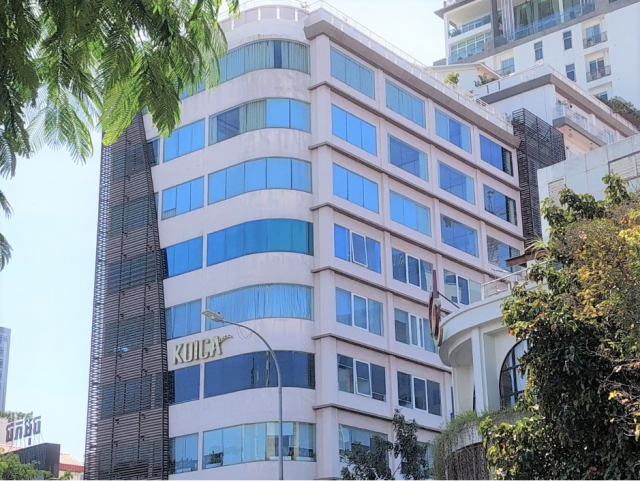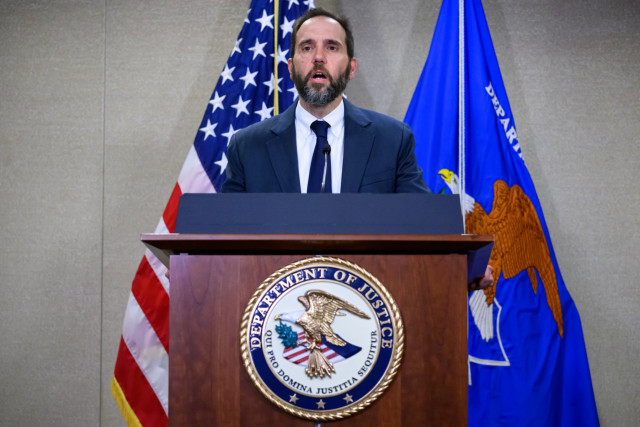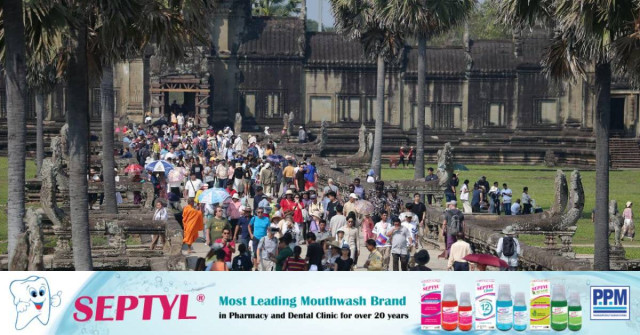Journalists’ Engagement Key to Mekong Prosperty

- By Meng Seavmey
- April 27, 2023 9:55 AM
PHNOM PENH – Around 50 journalists from the Mekong countries have gathered in the second Mekong journalism training workshop for three days to learn about journalists’ roles in promoting peace, stability and prosperity in the region.
Hosted by the Royal Academy of Cambodia, the workshop has the theme “Media Engagement for a Peaceful, Stable, and Prosperous Mekong Region”.
Journalists from Cambodia, China, Laos, Myanmar, Thailand, and Vietnam are taking part.
The workshop aims to raise awareness and build an understanding of the political and electoral systems, democratic processes and conduct of elections in Mekong countries.
Another objective is to explore the environmental and socio-economic landscape and development of the Mekong countries, as well as to examine the Mekong cooperation frameworks and their political agenda and key operational focuses.
More importantly, the workshop aims to improve communication and media practice on political and electoral systems in the Mekong region, and enhance information-sharing and networking.
Kin Phea, director-general of the International Relations Institute of Cambodia of the Royal Academy of Cambodia, said journalists help to spread information about the contemporary situation and development projects in the Mekong region.
“Because journalists from the Mekong countries are taking part, we hope that articles about the river will be spread among the people in each country, enabling the public to know more about the region,” he said.
“Some of the Mekong countries are still sharing false news about resources management in the river, aiming to cause troubles in the region.”
Journalists were important truth bringers of news in the region. Thus, they were essential to build a peaceful, stable and prosperous Mekong region, he said.
Sharing his 25-year experience as a journalist, Ky Soklim, advisor to the Club of Cambodian Journalists (CCJ), said journalism plays an important role in promoting tourism, cultures and the potential of the Mekong river.
“Throughout these 25 years, I have done some reporting on the Mekong river. The river is amazing. I have travelled along the river and have been reporting about the dams, starting from a Chinese province to Laos, to Vietnam, then to Cambodia,” he said.
“When we talk about peace, we talk about people-to-people connection. Sometimes, we, as journalists, can rarely make people understand each other due to the lack of reporting [on the Mekong River].
“They barely understand each other because there is little reporting on people-to-people connection.”
Soklim said journalists in the Mekong countries should do more reporting on the river to encourage people to understand each other, enabling them to love each other regardless of their nationality.
Journalists can promote the connection by talking about the cultures, tourism, or even history in their own languages but their articles can be translated and shared with people in the other countries.
“Journalists should also highlight the prosperity of the people living along the Mekong River. For example, has their prosperity improved?” he said.
“What are the remaining challenges they are facing? How is their livelihood? They can report about that, as these areas, I think, are important topics for the readers in each country.”
Sok Touch, president of the Royal Academy, said humans’ actions on nature will affect them in forms of climate change or natural disasters. The river was not only for the countries bordering it but was a resource for the earth as a whole.
“Regardless of their religion, color, or race, there is no one who does not need water. Everyone needs water. So, the journalists have to make the news like water — the need for everyone to know about the Mekong river. However, the news must be accurate and beneficial for everyone,” he said.
“The news has to reach the target readers and be useful for them, not just a tool for politicians.”
The workshop was organized by the International Relations Institute of Cambodia in partnership with Club of Cambodian Journalists and runs from April 26 to 28.
The second journalism training workshop was drawn upon the outcomes and knowledge from the first Phnom Penh Forum hosted by the IRIC in September last year.
One of the key outcomes, according to the IRIC, was how essential journalism is in reporting democratic elections, environmental concerns, and social issues across the region.















